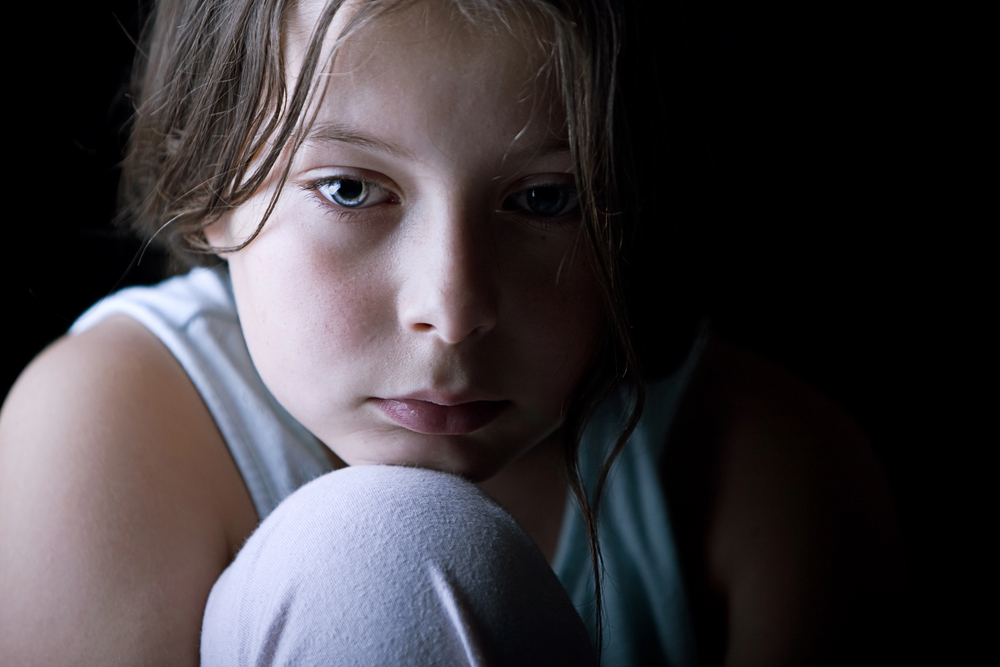A new article published in BMC Psychiatry finds that childhood maltreatment and trauma (CMT) is linked to increased psychosis symptom severity in people diagnosed with a schizophrenia spectrum disorder (SSD).
The research, led by Nina Mørkved of the Arctic University of Norway, concludes that this link is not explained or moderated by parental mental health problems. This finding suggests that childhood maltreatment independently contributes to psychosis symptom severity.
Previous research has repeatedly found a link between adverse childhood experiences and mental health problems. However, critics have suggested that poor parental mental health may be the actual cause of the observed links in that research. These critics maintain that poor parental mental health acts as both a genetic and environmental factor contributing to mental health problems, thereby preserving the biomedical emphasis on genetics in the face of overwhelming evidence implicating maltreatment and abuse.
The current finding undercuts that criticism by establishing a link between childhood maltreatment and psychosis severity independent of poor parental mental health.
The authors write:
“The present study examined the moderating effect of parental MHP on the relationship between CMT and psychosis in SSDs,” the authors write. “We found an association between CMT and psychosis symptom severity in SSDs, especially for the PANSS total scores and the PANSS negative sub scale scores. Parental MHP was not found to moderate the association of CMT and psychosis symptom severity in our sample of SSDs, suggesting that the effect of CMT on psychosis symptom severity is independent of having parental MHP.”
















I would like to see this studies methods because I think it is clear that trauma does obviously run in families and so too the psychological and emotional consequences, and this can be plainly seen in everyday life. I have also observed extensively in my life the relationships between our problems and those of the parents, and it is known for example that addiction or trouble with the police often effects parents and then children, and it seems to me entirely false to divide such problems as mental health, addiction, and normality, because the effects of our social conditioning is the most compelling general candidate for a mental pathology in our society and it effects everyone, and all subsequent emotional and psychological traumas emerge in such a conditioned mind which therefore shapes their expression and constrains their resolution through understanding. But I am sure that if we survey the actual living terrain, and have good study methodologies we will see that there are obvious patterns of psychological and emotional unresolved trauma and associated dysfunction, and perhaps they are approaching it too crudely and with too narrow categories and definitions of mental health to capture these complex associations. I’m going to have to look at the study…
Report comment
The study doesn’t make it entirely clear how the identification of parental mental health is achieved through an interview with the patient, and it seems they may be asking if the parents have a diagnosis of a mental illness or of psychosis – this isn’t seeing things as they are, seeing what other problems they may have, for example addiction, gambling, violence, sexual promiscuity and the like which can’t be separated from the forms of dysfunction that leads to a mental health diagnosis. These are not separate problem, and it is obvious, undeniable, that trauma frequently runs through families and therefore there is a contradiction between that obvious fact, the studies association between trauma and psychosis, and the finding that there is no association between child and parent mental health. I think this seems like a flawed study to me and surely there have been countless studies to show association between parent and child mental health difficulties. And their phrasing was ambiguous: they said there was an association between trauma and psychosis severity that was not mediated by parental mental health. Obviously a psychosis diagnosis in a parent can never mediate a child’s psychosis but obviously the whole familial, social and psychological environment is that which shapes the development of the child’s consciousness and life processes. So what they are insinuating was that there is not any causal relationship between adult mental health and child severity of psychosis, but how could there be when adult mental health is just a conceptual framing isolating an arbitrary set of human problems separated from other human problems? It seems they might be trying to prove the case against biological heredity and are missing the complex associations between the problems we all deal with as adults – psychological, emotional, behavioural etc – and those of our parents. No empirical research study like this is capable of apprehending the full living terrain – only we in our lives can do that and can discover these manifold and complex associations. And it is fully comprehensible if we learn how to observe and understand our own minds – and then this understanding deepens our understanding of all others. Again, no academic approach can do this – only a meditative or enquiring mind, one concerned to see things and understand things as they are.
Report comment
I know I criticize MIA but it’s a much better standard in terms of truth then almost any media content that I know of. None of the mainstream or online news media has any real potency or penetration of the urgent problems of today because they are not so committed to evidence and truth then those who are concerned about a serious issue like MIA, while all content on YouTube is degenerating into such an appalling and toxic standard all catering to the most immature and destructive parts of us which demand with all such media the ingredient of stimulation, which means they demand sensationalism. And because content creators want to attract attention this is what they offer, but when you examine the content it is a nothing burger generally conflating wild theories and facts. This is creating utter chaos and disorder in our minds and in the world, and is the field within which conspiracy theories and insane political ideologies and movements thrive. And how can we isolate this problem from those social presentations we denote as ‘mentally ill’?
Amongst all this what is missing is free and intelligent human beings not concerned with their employer or their industry or their business or their viewers but with the penetration and understanding of all the grave problems of humanity from a global point of view, with a pure truth-seeking intent, and I have only ever seen such discussions take place really in the 60s and 70s, even on mainstream media. Even many Western political interviews were dominated by the truth-seeking spirit, and politicians wouldn’t dream of saying things that could easily be proven non-factual – even Nixon never said obvious non-truths, let alone those that he didn’t even expect the interviewer or any other intelligent person to believe. How can we disconnect this things from the massively increasing problem that we refer to as mental illness? Clearly all of these are social illnesses, and have a common underlying bedrock – nature dominated by social history. We can only understand all these things as one – we can’t understand them when we isolate them, hence can’t understand anything in our world.
There has been an invisible and insidious disempowerment of the socially conditioned mind since the 70s and a deepening of all our psychological and emotional problems caused by this conditioning by an increasingly insane and irrational social order. The primary problem is our social conditioning, which is the field of all of our illusions and prejudices, and the consequent destructive ignorance and unhappiness and confusion that result, but there is no solution emerging in the social terrain whatsoever. It is obvious that the only solution is not social, but to see things clearly as they are, and absolutely no media organization is helping us to do that, so most of humanity are manifestly doomed, confused, frightened human beings that will only ever be a burden and a difficulty because they are so adrift from any coherent understanding of their lives and world. That is most people alive today, and the only solution is a devotion to the truth, which is not a devotion to knowledge but an understanding of this whole thing we call human life, which is a global phenomena and can only be appreciated as one total process. All specializations therefore destroy the possibility of total understanding, and any conditioning by specializations needs to be removed in order to make possible such understanding. MIA unfortunately is conducting its enquiries within a specialization except where it is seeking to grasp the problems of psychiatry and mental health in full relation to the whole of society, because how can you invest in institutional change without even knowing if the real solution is even institutional, which it seems clear to me it certainly isn’t? One could argue that it is similar to putting all your money in crypto. But at least you’ve learned allot about your reality by confronting psychiatry through these inadequate means. Can you throw off your shackles and limitations and tackle the bigger picture surrounding your truth-seeking critical and polemical efforts?
Report comment
“This content is restricted to buyers of .” Buyers of what?
“Psychosis Severity Tied to Childhood Trauma, Not Inherited Mental Illness” … the saddest part of this is that the number one cause of so called “mental illness” today is cover ups of child abuse, since none of the “mental health professionals” may bill to help child abuse survivors, according to their “invalid” DSM “bible.”
Report comment
Oh, now I have the full article, glad I’m a MiA subscriber. (And I am dealing with computer hacking problems … still. But it may be some Google affiliated entity now, since Apple tells me they have prevented Google from profiling me many times every week, despite the fact I’ve already told Google/YouTube who I am.)
Report comment
How embarrassing, us independent psychopharmacology researchers, who stand against child abuse, seem to have malice intending followers from many industries.
“By demonstrating that trauma and maltreatment predict more severe psychotic symptoms independent of parental psychiatric history, the findings shift attention to social and relational conditions rather than inherited vulnerability.”
And never forget, the antidepressants / “antipsychotics,” aka neuroleptics, can create “psychosis,” via anticholinergic toxidrome poisoning. And the “schizophrenia” treatments can also create the negative symptoms of “schizophrenia,” via neuroleptic induced deficit syndrome.”
Report comment
E como resolver isso?
Report comment
E como resolver isso?
Report comment
Does it “complicate” the mainstream narrative? I rather think it invalidates it pretty thoroughly. it doesn’t seem that parental “mental health” has much if any impact on the development of psychosis later in life, but that childhood maltreatment has a LOT of impact. Isn’t that just the opposite of what we are being told by the mainstream “thought leaders?”
Report comment
Abuse of children is a big problem in this country, many thanks to the systemic child abuse covering up, scientifically “invalid,” “mental health professionals.”
From youtube today:
https://www.youtube.com/watch?v=6WFVl1I7Z18
Report comment
Shouldn’t child maltreatment be considered a real mental health problem? However, just like the other reported mental health problems, medication/drugs aren’t the answer. Instead psychosocial interventions, including psychosocial education, should be recommended, in my opinion, instead.
Report comment
I don’t think child maltreatment is a “mental health problem”. I think it is a social problem, one of values and support and compassion. Those who abuse children aren’t ill, they are confused and emotionally unkind. Certainly their victims can’t be called ill, either, even though they often are labeled so for their understandable reactions to being abused. Most abusive parents have also been victimized by their own parents, and are generally repeating what they have been taught that parents are supposed to do. This is not an illness, it’s a problem of education and protection of children from harm.
Report comment
Thanks Steve for your response. i very much agree that the problem is very much “a social problem, one of values and support and compassion” as you say. However, i think that the “social problem” also involves lack of knowledge and lack of opportunity to develop and practice helpful and nonhurtful caretaker skills. I also agree with your statement that “Most abusive parents have also been victimized by their own parents, and are generally repeating what they have been taught that parents are supposed to do.” However, i believe that there are also other conscious and subsconcious stressors affecting such situations such as financial stressors, societal pressures, etc. However, i think the situation involves more than a “problem of education and protection of children from harm” because i think that there needs to be proper societal supports for individuals and families also. By the way, i’ve intentionally sidestepped the whole argument of “mental illness” because while i think that one can make a metaphorical case for “society’s ills”, I also dislike the terms of “mental illness” for either people who commit abuse and/or neglect and/or other trauma nor people who have been victimized because people often use the term “mental illness” to promote biological remedies, which seem to do much more harm than good, in my opinion. Also, the term “mental illness” and/or “mental illness” tends to be used to very wrongly justify trampling and neglecting and taking away of human rights. There also tends to be so much stigma attached to the terms “mental illness” and “mentally ill” which has been worsened by biological paradigms and by media.
By the way, when i made my original comment to the post, after i had typed my name, for some reason, the website seemed to automatically post my comment, though it provided me an opportunity to edit, and neglected to provide me with the other optional choices available. ;( I have always been very technologically-challenged, so the problem easily could have been some type of user error. ;(
Report comment
I agree with you completely on all points. I think we are of one mind on these matters.
I can’t say I have any clue about the technological glitch you seem to have encountered. It shouldn’t work that way. I trust that you got posted what you needed to?
Report comment
Just an FYI, Patricia, my child was abused by a board member of his preschool, not by either my husband nor I. Albeit I will admit my husband did come from a highly dysfunctional family, but my husband wasn’t a child abuser, he was a wife abuser, just like his weak father.
And once my family’s medical records were handed over, I did scare that private “school for gifted children” into closing it’s doors forever, on of all days, 6-6-06.
I just wanted to point out the abuse did not come from within my family, given your and Steve’s correspondence. So not all child abuse is blamed on families.
And since I did get my child away from the abuser quite quickly, by the time he was 10 or so he was doing much better. He got in the 100th% on his state standardized tests by 8th grade, graduated from high school as the valedictorian, from university Phi Beta Kappa, including winning a psychology award as well, with staggeringly glowing compliments to me, by his psychology professors.
I don’t want all abuse of innocent children blamed on family members, by the systemic child abuse covering up “mental health professionals.”
Report comment
I also see it as a social justice issue for many survivors. I highly recommend the book by Judith Herman, MD “Trauma and Repair”. As a survivor of severe child abuse I can say people seeing I was being abused (teachers, medical doctors, extended family etc) caused me the most harm. Not being believed or nobody helping me was the cruelest trauma of them all. People acknowledging the trauma happened is like a healing salve to the heart and soul.
I always appreciate your comments, Steve. You have great insight. Thank you
Report comment
Thanks for saying so!
I have also heard this many times from survivors. Those who are believed and someone tries to do something about it, even if they aren’t effective, do much better and often cope fairly well with the damage. It’s the ones who are ignored or invalidated who have the worst damage by far. Bad enough to be abused, but to have those who are supposed to protect you pretend it’s not happening is adding insult to injury!
Report comment
Thanks Steve for you question.
Yes, i was able to post each time what I had intended to post.
However, the first time that I posted a comment to this article/thread, I wasn’t able to input my email address nor request to notify me of followup comments via email. However, i was able to do so the second time i posted a comment to this article/thread.
If you haven’t yet heard of anyone else experiencing the problem that I experienced, then the problem was likely some type of user error. I just want you to be aware of such in case anyone else seems to experience a similar problem.
Patricia
Report comment
POSTING AS MODERATOR:
Thanks for the update. I’m glad you got it sorted!
Report comment
I largely agree with Steve, Patricia, but have also been dealing with major computer hacking / profiling issues recently, too.
Report comment
Thanks “Someone Else” for that reinforcement, especially since you have seemed to post a lot.
I’m sorry that you have been coping with major computer hacking and profiling issues recently too.
I, unfortunately, have also been the recipient of computer hacking (numerous times and for numerous years both with email and with my hard drives) and profiling too, the latter of which i have been experiencing for a much longer time. And,i know of many others who, unfortunately, have been recipients of email hacking too.
Patricia
Report comment
A big cause of family issues have to do with finances or lack of which lead to upset in the family that can lead to abuse. Mental health issues lack of funding and the Big Beautiful BS Bill is gonna make matters worse. Vote these jerks out and put common caring sensible people in office please to help turn this trauma drama around!!
Report comment